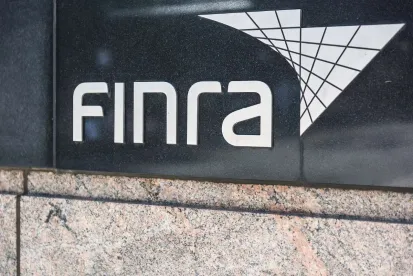FINRA Unveils New Complex Investigations and Intelligence Team and Cyber and Analytics Unit
With an increased focus on data and analytics, FINRA now has a newly-formed team and unit dedicated to leveraging intelligence and analytics to drive decision making and operations. The new Complex Investigations and Intelligence (CII) team and Cyber and Analytics Unit (CAU) will now spearhead an initiative designed to be both proactive and preventative in identifying and mitigating the most complex threats that the industry faces. “Within CII, we’ve intentionally built these teams to be agile and nimble, to be able to pivot quickly and adapt to address emerging threats or risks in their area of specialization,” said CII’s Vice President Omer Meisel during a recent edition of the FINRA Unscripted podcast.
The Cyber and Analytics Unit is one of the groups within CII. Its mission is to conduct complex investigations in the cybersecurity, cyber-enabled fraud and crypto asset disciplines. Brita Bayatmakou, who heads up the CAU, recently noted that “For the first time FINRA will have a dedicated crypto asset focused group.” Ms. Bayatmakou emphasized that while FINRA’s touch points might be limited today, it is important that “we identify and address developments in markets to ensure that the investing public, even in adjacent markets, are protected, again, aligning with FINRA’s core mission.” Meisel stressed that these new units are another example of FINRA being proactive in thinking about these threats. “We aren’t waiting, necessarily, for someone to tell us we should be in this space or reacting to the events. Rather, we are positioning ourselves to be able to address the threats,” he said.
FINRA Reminds Member Firms of Their Duty to Supervise Digital Signatures
On August 3, 2022, FINRA issued Regulatory Notice 22- 18 in response to reports of registered representatives and associated persons forging or falsifying customer signatures, or the signatures of colleagues or supervisors, through the use of third-party digital platforms. The forgery and falsification of signatures by an associated person constitutes a violation of FINRA Rule 2010 (Standards of Commercial Honor and Principles of Trade) and the books and records provision of FINRA Rule 4511. These issues have been flagged in “account opening documents and updates, account activity letters, discretionary trading authorizations, wire instructions and internal firm documents related to the review of customer transactions.”
To facilitate member firms in understanding and satisfying their regulatory obligations and mitigate risk, FINRA outlined five methods and scenarios for identifying digital signature forgery or falsification:
-
Follow up on customer inquiries or complaint investigations involving account transfers or securities transactions that have revealed instances of registered representatives forging or falsifying customer signatures;
-
Review digital signature audit trails;
-
Conduct email correspondence reviews that may assist in identifying instances where customer email addresses have been altered “in ways that are indicative of attempts to conceal information from customers”;
-
Conduct administrative staff inquiries that may reveal occasions in which firm administrative staff were directed to manipulate digital signatures by representatives; and
-
Implement customer authentication controls and supervisory reviews.
FINRA Proposal Would Result in an Overhaul of the Expungement Process
FINRA recently submitted to the SEC for its approval a new set of rule changes that would impose stricter requirements for registered representatives seeking the expungement of customer disputes.
Currently, the FINRA rules offer two paths for expungement requests: (1) in the context of a customer-initiated arbitration proceeding where the associated person asks the arbitration panel to issue an award recommending expungement; and (2) the so-called “straight-in” request, where a registered representative initiates a new arbitration proceeding seeking expungement.
Following increased and continued pressure from certain outside parties, including PIABA, FINRA is now proposing adding more requirements based on the perceived ease with which registered representatives have been able to get CRD disclosures expunged and the view that the current system has led to expungements beyond the “limited circumstances” that FINRA claims it envisioned by its rules.
-
Changes to Straight-In Proceedings
-
Straight-in requests will need to be decided by a three-person panel that is randomly selected from a roster of experienced public arbitrators with enhanced expungement experience. The registered representative will not have any ability to strike any of the selected arbitrators.
-
Registered representatives will need to provide notification to state securities regulators of all expungement requests and a means for state securities regulators to attend and participate in these hearings.
-
The new rules would impose strict time limits on the filing of these requests, including: (i) requiring an associated person to commence a proceeding within three years after a customer complaint was reported to FINRA’s CRD system if the complaint did not evolve into an arbitration or litigation or (ii) more than two year after the close of an arbitration. It is estimated that these new time restrictions alone would eliminate approximately 70% of all straight-in filings.
-
A successful straight-in-request will require the unanimous agreement of the panel to issue an award containing expungement relief.
-
-
Changes to Expungement Requests Considered During a Customer-Initiated Arbitration
-
A registered representative named as a party in the arbitration must request expungement in the Answer to the Statement of Claim or in a separate pleading filed no later than sixty days prior to the first hearing date.
-
If the registered representative is not named as a party, the named broker-dealer may file an “on- behalf-of” request for the registered representative, but the broker must sign a form consenting to the on-behalf-of request and agreeing to be bound by the panel’s decision.
-
According to FINRA, these proposed changes to the expungement process “are responsive to the concerns that have been identified with the current expungement process and would help protect the integrity” of the CRD system. The SEC has now requested public comment on the proposed rule changes, and if approval is granted, these new rules would likely become effective in early 2023.
If these new rules are enacted, it will make the process of obtaining expungements considerably more difficult. Even if the comment period results in slight modifications to the proposed rules, registered representatives would be wise to act swiftly if they believe their CRDs contain false customer complaints or disclosures before the new rules make expungements more difficult or prevent them altogether.
Notable Enforcement Matters and Disciplinary Actions
-
Anti-Money Laundering. Broker-dealer ViewTrade Securities Inc. was sanctioned $250,000 for failing to establish and implement a written anti-money laundering (AML) program reasonably expected to detect and cause the reporting of suspicious transactions, in violation of FINRA Rules 33l0(a) and 2010.
According to FINRA, ViewTrade’s web-based trading platform was used by a substantial number of foreign financial institutions (FFIs). Despite its business model and customer base, ViewTrade failed to assign anyone to review transaction reports for suspicious activities or provide procedures for detecting improper transactions.
In the Letter of Acceptance, Waiver and Consent (“AWC”) detailing its findings on this matter, FINRA reminded broker dealers of its past guidance on this issue, including NASD Notice to Members 02-21 and, more recently, Regulatory Notice 19-18. Among RN 19-18’s enumerated “red flags” were several that were allegedly applicable to ViewTrade’s trading activities, including: the customer’s legal or mailing address is associated with multiple other accounts or businesses that do not appear related; the customer buys and sells securities with no discernable purpose or circumstances that appear unusual; and the customer makes high-value transactions not commensurate with the customer’s known income or financial resources. In addition to its alleged AML deficiencies, ViewTrade also allegedly failed to establish, document, and maintain a system of risk management controls and supervisory procedures reasonably designed to manage the financial, regulatory, and other risks presented by its provision of market access to customers, in violation of Section 15(c)(3) of the Securities Exchange Act of 1934, Exchange Act Rule 15c3-5, and FINRA Rules 3110 and 2010.
-
Excessive Trading. FINRA fined Joseph Stone Capital LLC and several of its representatives more than $1 million for excessive trading in 25 customer accounts. FINRA also suspended 13 current and former Joseph Stone representatives and supervisors. The AWC detailing FINRA’s findings on this matter is available here.
FINRA alleged that, throughout a 5-year period, Joseph Stone’s excessive and unsuitable trading caused customers to incur approximately $10 million in commissions and other trading costs. This trading generated cost-to-equity ratios—that is, the amount the accounts must increase in value just to cover commissions and other trading expenses—ranging from 21% to 96%.
-
Failure to Report. FINRA fined an investment bank $5 million for failing to report over-the-counter (OTC) options positions to FINRA’s Large Options Positions Reporting system (LOPR). LOPR is a tool used by FINRA to police potentially manipulative behavior, including attempts to: corner the market in the equity underlying the option, leverage an option position to affect the price, or move an underlying equity to change the value of a large option position. According to FINRA, LOPR is the only means by which regulators can review OTC options activity. FINRA alleged that the bank failed to report OTC options in more than 7.4 million instances, including 26 positions that were over the applicable limit. In addition, the bank allegedly failed to maintain adequate supervisory procedures.
Notable FINRA Arbitration Awards
-
Options trading. We have reported in our past several issues on a series of customer arbitration proceedings related to investments in a securities broker-dealer’s managed account options trading strategy. Two more awards have been issued in similar cases since our last report, both of which included substantial monetary awards.
-
FINRA Case No. 20-01201 – An arbitration panel, after conducting a five-day hearing, found the broker-dealer liable for $350,000 in damages on claims relating to its managed account options strategy. The panel also awarded the Claimant its costs and more than $100,000 in attorneys’ fees.
-
FINRA Case No. 19-03373 – A separate arbitration panel conducted a seven-day hearing in Florida, on similar claims relating to the same options trading strategy, and issued an award against the broker-dealer for more than $5 million in compensatory damages.
-
-
Churning
-
FINRA Case No. 17-02578 – Following an eight- day hearing on claims that an account manager at a securities broker-dealer unilaterally altered the Claimants’ risk profiles on their account forms and engaged in churning in order to generate excess commissions, the arbitration panel issued an award holding both the broker-dealer and its registered representative (the account manager) jointly and severally liable for more than $700,000 in damages.
-
-
Ponzi schemes
-
FINRA Case No. 21-02234 – Following a hearing conducted over eleven days, a three-arbitrator panel issued an award against an investment bank for more than $35 million. The claims in the arbitration related to investments in Horizon Private Equity III, a private equity investment fund that was alleged to have been operated as a Ponzi scheme. The damages award against the bank consisted of approximately $4 million in compensatory damages, statutory damages under Georgia’s RICO statute of approximately $14 million, an additional $11.5 million in punitive damages under the Georgia RICO statute, and more than $5 million in attorneys’ fees.
-





 />i
/>i
